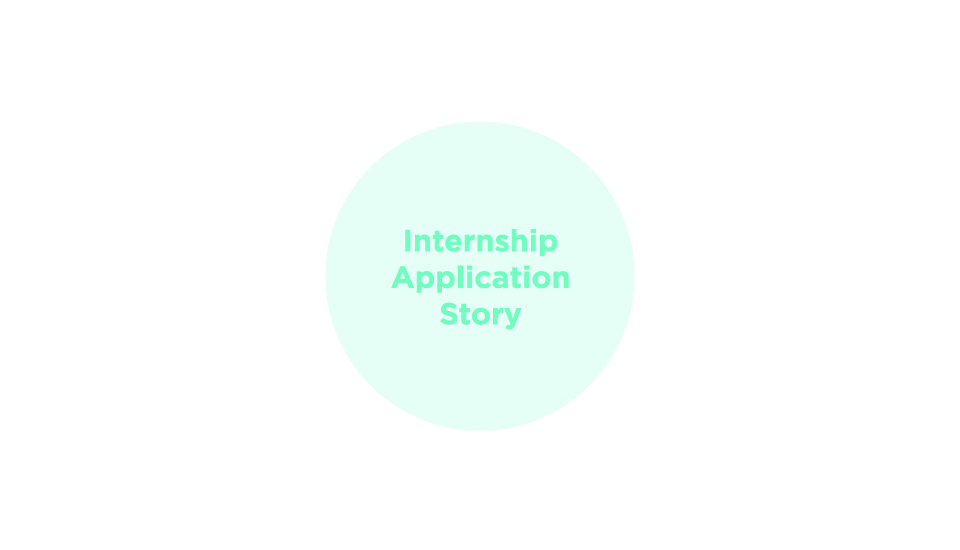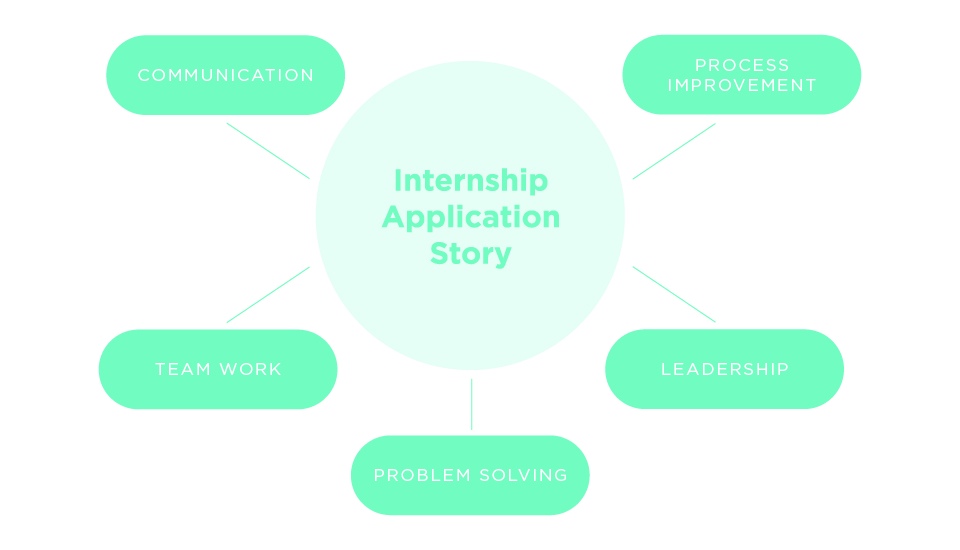Are you prepared to answer behavior-based interview questions?
We’ve all been there—sitting in an interview, you thought you were prepared for when the dreaded words, “Tell me about a time when…” come out of the interviewer’s mouth.
You've been hit with the behavioral questions part of the interview, and you brought no stories to tell.
Suddenly, your memory fails you, and you can’t think of a single impressive story to tell this person who is basically deciding your fate. You may have even prepared for behavior-based questions, but you simply can’t think of a story that fits their particular question.
But what if you could place your interviewer at the center of your decision-making in moments of stress? What if you could illustrate exactly how tense and high-stakes the outcome would be?
Table of Contents
Well, you can do that. Here's how.
What Is a Behavioral Interview Question?
A behavioral interview question is a question designed to gather how you react in certain workplace situations. Behavioral interview questions typically take two forms—a question about a real event and how you handled it or a hypothetical situation that could occur in the future.
Real event questions are often poised to gain perspective on how you respond to difficult decisions, how you use
problem-solving skills, or past behaviors you've displayed in relation to common obstacles.
These questions often start with:
- Tell me about a time...
- Give me an example of a time when...
- Describe a time when...
Some behavioral interview questions will pose hypothetical questions around common circumstances that occur at the organization where you are interviewing. Also known as situational interview questions, these behavioral questions put you in the hot seat.
These questions often start with:
- What would you do if...
- If [X] were to happen, how would you proceed?
The Big Behavioral Interview Question Hack: Story Circles
When caught off guard by a behavior-based question, most people either (hopefully unintentionally) tell a story sprinkled with some half-truths or simply panic and can’t come up with an answer at all. Neither option is ideal, right?
So when I learned about the “story circle” method, I started teaching it to every client that came to me for
interview coaching.
The concept of story circles was developed by my brilliant colleague, Linda Ashworth, who was in career development at a university for 12 years prior to retirement.
After seeing student after student fall on their face during behavior-based interviews, she developed a method that allows you to memorize just seven to ten stories while being prepared for 35-50 different behavior-based questions. I know...amazing, right?
15 Common Behavioral Interview Questions
Before we dive into exactly how to use story circles, let's explore some of the most common behavioral interview questions a hiring manager might ask.
When answered thoughtfully and creatively, these behavioral interview questions offer insight into who a candidate actually is as a person, how they react in high-pressure situations, and how they compose themselves in a moment of disagreement.
These questions are so important in a world that is increasingly screening for
soft skills and people skills.
1. Tell me about a time you wished you had handled a stressful situation with a customer differently.
Skills to Showcase:
- Adaptability
- Empathy
- Self-Awareness
2. Have you ever worked with someone whose work style was completely different from yours? How did you manage your collaboration?
Skills to Showcase:
3. Tell me about a time you encountered conflict. How did you handle it?
Skills to Showcase:
- Problem-Solving
- Conflict Resolution
- Understanding
4. Tell me about a time you needed to prioritize equally-important tasks under a deadline.
Skills to Showcase:
5. Have you collaborated with a team on different or flexible schedules? How did you manage communication?
Skills to Showcase:
6. How do you handle disagreements or unpleasant behavior with your coworkers or supervisor?
Skills to Showcase:
- Empathy
- Active Listening
- Questioning
7. Can you provide specific examples of a time when you overcame obstacles and learned about managing better?
Skills to Showcase:
8. Tell me about a time your prioritization skills lightened your workload.
Skills to Showcase:
9. Tell me about a time you set a goal for yourself. How did you go about ensuring that you would meet your objective?
Skills to Showcase:
10. Describe a long-term project that you managed. How did you keep everything moving along in a timely manner?
Skills to Showcase:
11. Give me an example of a time when you used your persuasion skills to change someone's mind and the impact it made.
Skills to Showcase:
- Influence
- Critical Observation
- Logical Reasoning
12. Tell me about your top three professional accomplishments.
Skills to Showcase:
- Self-Awareness
- Confidence
- Commitment
13. Describe a past work experience that you learned the most from.
Skills to Showcase:
- Critical Thinking
- Self-Awareness
- Humor
14. Tell me about a time you were able to use teamwork to navigate a tough project.
Skills to Showcase:
- Creativity
- Teamwork, Team-building
- Resilience
15. Tell me about a time you became upset at work. How did you proceed?
Skills to Showcase:
How to Use Story Circles to Tackle Behavior-Based Interview Questions
Now that you have an idea of what to expect from these questions take, let's figure out how to use your real experience to answer them. Follow these steps to make your own story circles:
Story Circle Step #1: Begin With Practice Questions
A behavior-based question asks you to tell a story about something you’ve done in the past. Start by thinking of a common behavior-based question for your field. A simple Google search will usually give you a great start, but here are some quick examples:
- Project Manager: “Tell us about a time you improved a process or system. How did you go about this and what was the result?”
- Graphic Designer/Videographer: “Tell us about a time you worked with a client that had unreasonable expectations for turnaround time. How did you manage the situation?”
- Nurse: “Give us an example of a time you had a hostile patient. How did you handle this situation and what was the result?”
Story Circle Step #2: Be a STAR
Develop your story using the STAR method (Situation, Task, Action, Result).
The STAR method works well because it gives the interviewer everything she needs to know—the context of the story, what was required of you, the specific steps you took, and the result of your actions. After working with hundreds of clients, I've noticed that most people naturally tell a story using the first three letters, but even after I tell them repeatedly to give me a result, they still forget or struggle to do so!
It’s unnatural for us to give a result
because it feels like bragging. An experienced interviewer, however, will be looking for the result in your story. If you want more info on how to tell an effective story using the STAR method, we
walk you through it here. Here's an example of what a STAR answer might look like:
- Situation: "The internship application process I was managing had too many steps and I was receiving complaints from students and faculty members."
- Task: "I needed to reduce the number of steps."
- Action: "I created a process map, identified steps that could be combined or eliminated, created a proposal, and asked for feedback from my team. We then implemented the changes."
- Result: "I received feedback from students and faculty that this new process was a great improvement, and it cut our admin’s time spent on applications down by 70 percent."
This is a short version of the story, just to give you a bit of context for your own STAR method. I encourage you to elaborate more than this in an interview!
Story Circle Step #3: Create Your Story Circle
You can create a story circle in three simple steps. First, come up with a name for your story that will jog your memory, and put it in a circle like this:
Then, put lines around your story and think of all the different types of behavior-based questions that this one story could answer. If your story can’t answer at least four behavior-based questions, get rid of it or rework it!
And lastly, flesh it out. Think through how you might emphasize different parts of the story depending on the question. The “Project Manager” question under number one asked about process improvement.
In response to this question, I might spend more time explaining the process map and the combination/elimination of steps, whereas a question about leadership would cause me to further explain how I created a team, delegated tasks, and
asked for feedback.
Story Circle Step #4: Write More Stories
Use the job description as a reference. The more stories you can come up with, the better (but not so many that you can’t remember them). My best advice?
Read through the job description multiple times and identify questions you think may be asked based not only on the requirements but the duties, as well.
For example, if the duties section includes a point about a lot of tight deadlines but the requirements section doesn’t mention it, you should still be prepared for a question about your time and stress management.
Remember, Variety Is Key
Make sure each story can answer different types of questions.
It won't be helpful for you if all of your anecdotes answer the same questions and show the same strengths. You want to be able to show that you're a well-rounded employee who can excel in diverse situations.
Become Familiar—But Don’t Memorize
Don’t memorize your stories word for word. If you do, they will become robotic, and you won’t be able to adjust them as required by the question. Focus on remembering the story name and the general idea, and practice them out loud a few times. You can even write down the names of your stories (but just the names!) in a notepad and quickly reference them during the interview.
Check in with yourself as you practice—did you give a clear result?
If you can successfully think of ten stories that each answer five different behavior-based questions, you’ve just prepared for 50 different questions! Now, next time you get a “Tell me about a time…” question you can look a little less like a deer in headlights and a little more like the confident woman you are.













